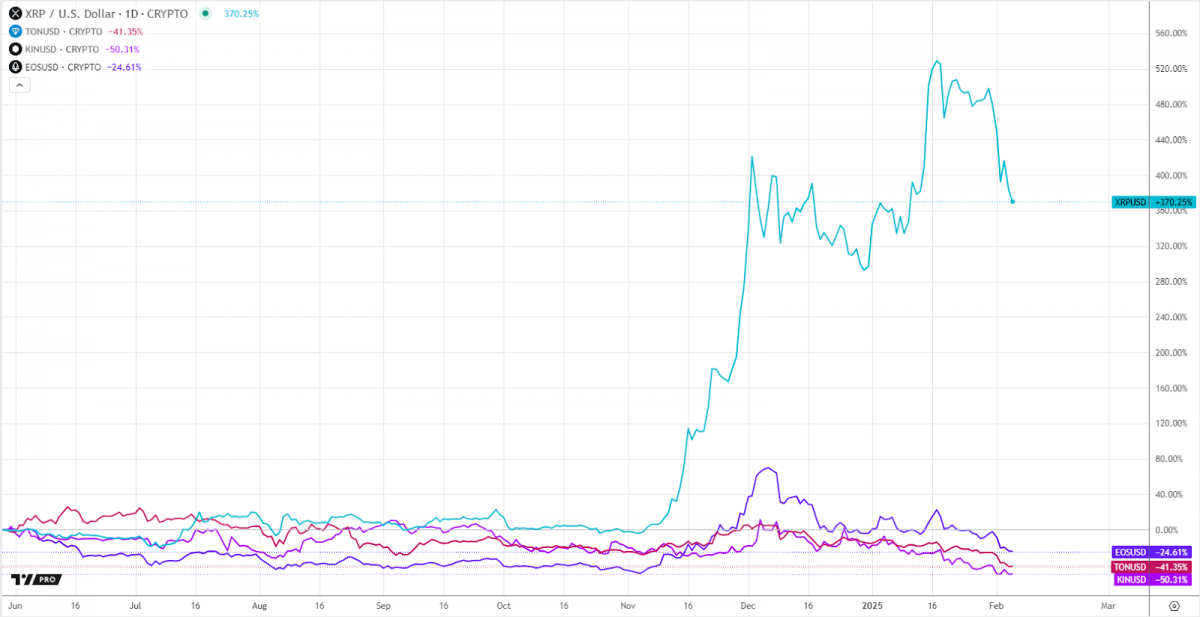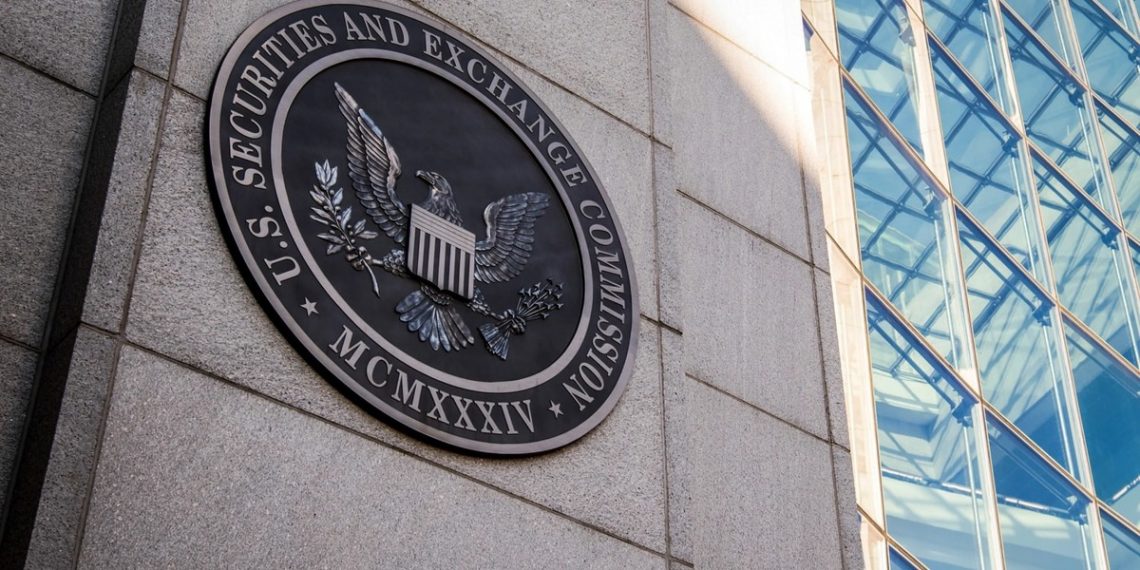Cryptocurrencies have long been an integral part of the global financial system, attracting the attention of both investors and regulators. One of the key regulators in this space is the U.S. Securities and Exchange Commission (SEC). Unfortunately, the SEC is known for high-profile legal battles rather than objective oversight. However, as a regulatory body, its primary role is to maintain control and stability in financial markets.
The SEC is a federal agency responsible for regulating the securities market, protecting investors, and ensuring financial market transparency. His tasks include overseeing public companies, stock exchanges, brokers, and other market participants. In recent years, the SEC has mostly focused on cryptocurrencies, viewing them potential investment instruments that require regulation to protect investors and prevent fraud.
5 Cryptocurrencies Targeted by the SEC
1. Ripple (XRP)
In December 2020, the SEC filed a lawsuit against Ripple Labs and its CEO, Brad Garlinghouse, claiming that the sale of XRP qualified as an unregistered securities offering. The SEC accused Ripple of raising more than $1.3 billion through the sale of XRP without proper registration. This legal battle has significantly impacted XRP price and forced some exchanges to delist it.
2. Telegram (TON)
In October 2019, the SEC took action against Telegram Group Inc. regarding its Telegram Open Network (TON) project and the Gram token. The SEC claimed that Telegram’s $1.7 billion ICO (Initial Coin Offering) violated securities laws. As a result, Telegram was forced to abandon the project and return the funds to investors, damaging the company’s reputation and undermining trust in ICOs. However, TON later resurfaced in the crypto space.
3. Kik Interactive (KIN)
In September 2019, the SEC accused Kik Interactive of conducting an unregistered securities offering through the sale of Kin tokens, which raised over $100 million. The legal battle forced Kik to halt further token sales and seek a settlement, underscoring the importance of complying with regulatory requirements when launching an ICO.
4. BitConnect (BCC)
BitConnect was one of the most infamous cryptocurrency platforms, known for its high-yield investment schemes. In January 2018, the SEC warned that BitConnect was operating as an illegal investment platform and a Ponzi scheme. This led to the platform’s shutdown, millions of dollars in lost investments, and increased SEC scrutiny of similar projects.
5. Block.one (EOS)
In August 2019, the SEC sued Block.one, the developer of the EOS platform, for conducting an unregistered securities offering through the sale of EOS tokens, raising more than $4 billion. In September 2019, Block.one reached a settlement with the SEC, agreeing to pay a $24 million fine without admitting guilt. This case highlighted the large-scale projects subject to SEC regulation.

Why the SEC is Intensifying Scrutiny on Cryptocurrencies
- Investor protection: With the growing popularity of cryptocurrencies, the number of fraudulent schemes and scams that put investors’ funds at risk have also increased. Bitcoin alone has been associated with hundreds, if not thousands, of illegal activities.
- Market regulation: Increased oversight aims to create a transparent environment for legitimate projects and prevent market manipulation.
- Legal uncertainty: Many cryptocurrencies and tokens exist in a regulatory gray area, requiring clear regulations to determine whether they should be classified as securities.
- Innovation and сompetitiveness: Regulation helps balance innovation and law enforcement, which is essential for maintaining U.S. competitiveness in the global tech industry.
How Cryptocurrency Companies and Exchanges Can Avoid SEC Scrutiny
- Regulatory сompliance: Conduct thorough analysis and ensure compliance with securities laws when issuing and selling tokens.
- Transparency: Regularly provide clear and accurate information to investors while adhering to corporate governance standards.
- Legal expertise: Engage qualified legal professionals to assess a project’s regulatory standing and provide guidance on compliance.
- Risk management: Implement robust risk control systems to detect and prevent potential violations.
- Regulatory Engagement: Foster a constructive dialogue with the SEC and other regulators to resolve emerging issues and adapt to changes in the legal framework.
The SEC’s influence on the cryptocurrency market is significant and multifaceted. Legal battles with major projects such as Ripple and Telegram highlight the importance of regulatory compliance for the sustainable growth of the crypto industry. Additionally, Bitcoin price has often reacted to SEC decisions, showing how regulatory actions impact the broader cryptocurrency market. For cryptocurrency companies and exchanges, adhering to legal requirements, maintaining transparency, and taking a proactive approach to regulation are key to successfully operating in the market and building trust with investors and regulators.

Disclaimer: The views expressed in this article are those of the author and may not reflect the views of the CryptoTotem team. This article is for informational purposes only and is not intended to be used as legal, tax, investment or financial advice. The author or the publication does not hold any responsibility, directly, or indirectly, for any damage or loss caused or alleged to be caused by or connected with the use of or reliance on any content, goods or services mentioned in this article. Readers should do their own research before taking any action on this matter.





